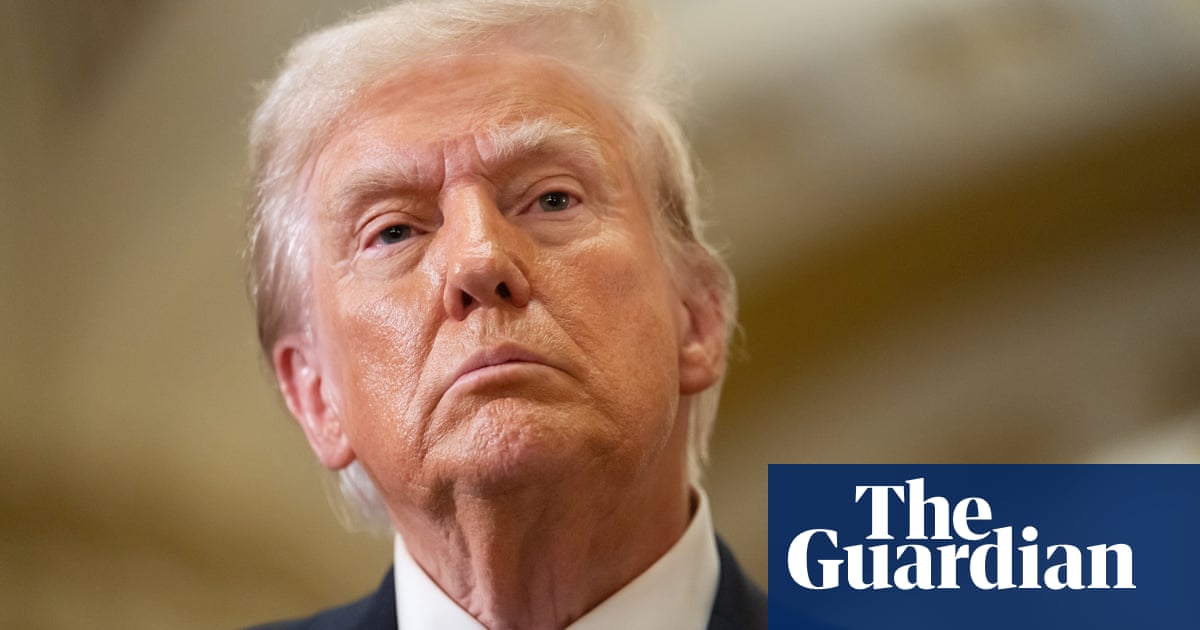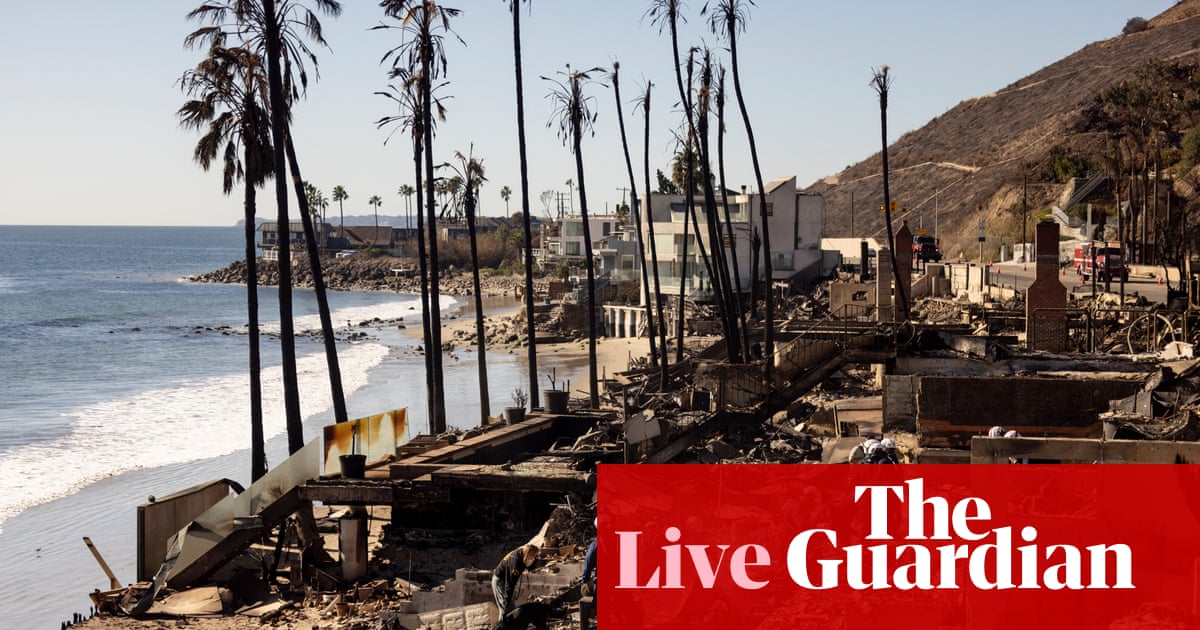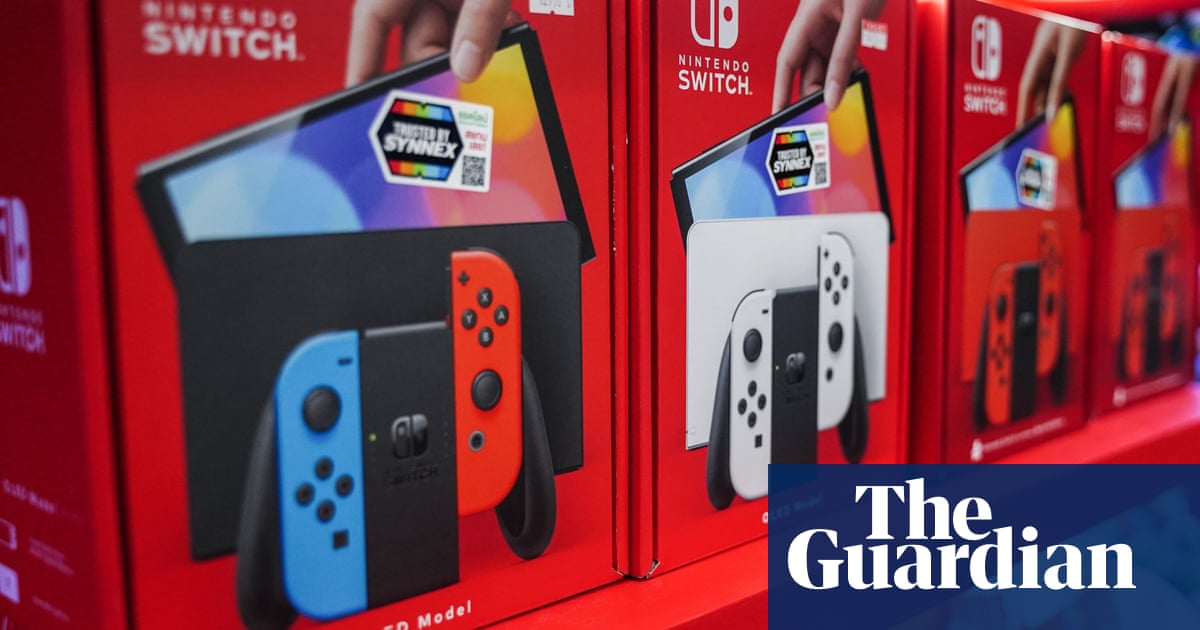The party was buzzing, the confidence was surging and Kenneth Stewart was riding the Trump train. “He’s masculine,” explained Stewart, an African American man from Chicago. “He brings a lot of energy. He talks about things that we can understand. He talks about building. He talks about the auto industry. He talks about a lot of stuff that people in the Rust Belt care about.”
Stewart was a guest at Donald Trump’s election watch event in West Palm Beach, Florida, on Tuesday night and celebrated his victory over Democratic vice-president Kamala Harris. The result said much about gender, race and the new media landscape. It also represented a populist backlash against America’s perceived elites.
In the aftermath of the coronavirus pandemic, millions felt a distrust of authorities that ordered them to wear masks, close schools and go into lockdown. They felt frustrated by post-pandemic inflation that pushed up the prices of groceries and petrol. They felt they would never be able to buy a house, that the American dream was slipping away. They were looking for someone to blame – and for a champion who could fix it.
They believed they found him in Trump and, despite his two impeachments and 34 criminal convictions, returned him to power. He made gains among nearly every demographic group. In part he was riding a wave of anti-incumbency fervour that has swept through major democracies, battering the left and the right in the aftershocks of the pandemic.
That will provide little comfort to Democrats, who raised a billion dollars yet lost the national popular vote. They have come to be seen as the party of the highly educated who earn more than $100,000 a year and live in big cities such as New York and Washington. They are perceived as out of tune with people who work with their hands and shower after work instead of before.
Stewart said on Tuesday night: “The other side, they’re only talking about feelings. They’re talking about Trump’s bad. But come to me with tangibles. A lot of Black men just want tangibles. We just want jobs. We want to see what our fathers had. We want to see what our grandfathers had, especially in the Rust Belt.”
America is a nation of cavernous inequality with few safety nets. The last populist convulsion came 15 years ago after the Great Recession. On the left it spawned Occupy Wall Street, a response to economic inequality, corporate greed and the influence of money in politics. On the right it gave rise to the Tea Party, fuelled by rage against elites, distrust in government and racial hostility to President Barack Obama.
The Democratic and Republican parties each absorbed these movements into their political DNA. They manifested in the 2016 presidential election when the harmful effects of globalisation, trade and deindustrialisation took centre age. Leftwing senator Bernie Sanders drew huge crowds in Democratic primary but lost, while non-politician Trump drew huge crowds in the Republican primary and won.
The pandemic, and subsequent inflation, provided another trigger moment. Trump, a Manhattan billionaire, tapped into anti-establishment sentiment and bad economic vibes to style himself as an unlikely hero of the working class. He promised sweeping tariffs on foreign goods and the protection of manufacturing jobs inside the US.
The pitch was infused with race-baiting, scapegoating and xenophobia: Trump claimed that undocumented migrants were draining resources, causing crime and destroying communities. His demagoguery extended to an entirely fictitious claim that Haitian immigrants in Springfield, Ohio, were eating pet cats and dogs.
The former president painted Democrats as an elite out of touch with the affordability and cost of living crises facing those further down the economic ladder. Harris proposed a federal ban on price-gouging but it was too little too late. She did not help her cause during their debate by citing investment bank Goldman Sachs’ support for her financial plans as a reason to vote for her.

Claire McCaskill, a former Democratic senator for Missouri, told MSNBC that Trump “knew our country better than we did”. She recalled: “I grew up in a party where we were for the underdog. We were for the little guy. We are now the elite. We are no longer seen as the party for the little guy.
“He was seen as the party for the little guy. He was seen as the ultimate disrupter and yes, the edges were very rough but in everyone’s own minds they sanded them down to the point of acceptability and, as it turns out, there’s a lot of craving in America for fear and anger – driven by lies.”
America’s political class divide has been growing for years. In the 2016 election Trump won 2,584 counties nationwide while Hillary Clinton carried only 472. But Clinton’s counties accounted for nearly two-thirds of America’s economic output, the Brookings Institution thinktank found.
The split finds expression in the way people dress, the TV shows they watch and the ways they interact (or don’t). In 2016 Trump won 76% of counties that contained a Cracker Barrel, a restaurant offering southern homestyle cooking on interstate highways, and just 22% of counties with Whole Foods, an organic national supermarket chain. The Cook Report noted that the 54% gap compared with a 19% difference in the 1992 election.
On the eve of the 2024 election Trump held a campaign rally in Pittsburgh, Pennsylvania, where some supporters wore miners’ helmets. Among the speakers was rightwing media personality Megyn Kelly, who told the crowd that Trump will look out for “our forgotten boys and our forgotten men, guys like you, guys like these guys who’ve got the calluses on their hands, who work for a living, the beards and the tats, maybe have a beer after work, and don’t want to be judged by people like Oprah and Beyoncé, who will never have to face the consequences of her disastrous economic policies. These guys will. He gets it. President Trump gets it. He will not look at our boys like they are second-class citizens.”
An exit poll on Tuesday showed Trump winning voters whose household incomes are between $30,000 and $100,000. His sense of grievance struck a chord with people who feel left behind and sneered at as “deplorables” or “garbage” by Democratic leaders, journalists and Hollywood celebrities.
Joe Walsh, a former Republican congressman and Tea Party activist who campaigned for Harris, says by phone: “The perception is that these people are elites. That’s what these folks have told me for the last five years. Many of them acknowledge Trump’s an asshole but they say, look, the Democrats are looking down on me. I heard that all the time.”
Walsh always believed that the election would be about Trump’s demagoguery and its appeal to working class Americans. “It’s been crystal clear for the last four, five, six years, certainly ever since Covid, regular everyday people have been concerned about immigration, a broken border, crime on the streets and the price of bread and the price of butter.
“They’re pissed off and angry about that stuff and Democrats have ignored it, especially the issue of immigration. Biden and Harris made it worse when they came in. Trump feeds these people bullshit like they’re eating cats and dogs but we have way too many migrants in America. It’s created real problems and Democrats have decided to ignore it. It bit them in the ass.”
Democrats are now engaged in long and painful soul-searching. Sanders argued in a scathing statement a party that had forsaken the working class should not be surprised to “find that the working class has abandoned them”. He added: “First, it was the white working class, and now it is Latino and Black workers as well.”
That prompted an angry rebuke from Democratic National Committee chairman Jaime Harrison, who dismissed Sanders’s thesis as “straight up BS” and posted a long list of Joe Biden’s achievements for low income families. “Biden was the most pro-worker president of my lifetime,” he wrote.
Research shows that one of Trump’s most effective ads was focused on keeping boys out of girls’ sports with the the tag line “Kamala Harris is for they/them. Donald Trump is for you”. New York congressman Ritchie Torres condemned what he sees as smug political correctness on the left, insisting that Trump had “no greater friend” than activists alienating voters with “absurdities like ‘Defund the Police’ … or ‘Latinx.’”
Trump had always performed strongly among white men without a college degree. But this time he won the votes of one fifth of Black men and nearly half of Latino men. He also made inroads among young voters.
Bill Galston, a former policy adviser to President Bill Clinton, observes: “We are witnessing the slow eclipse of race in favour of class. The question that I posed publicly in the week before the election was: would Donald Trump be able to continue the movement of the Republican party towards a multi-ethnic working class? And, if he did, not only would he win but he would be transforming the axis of American politics.
“The answer to that question is clearly yes, he has succeeded in moving the Republican party further down that road. What that means is that the contrast between the Republican party and the Democratic party, particularly on cultural issues, will continue to widen unless the Democrats start paying attention to the message they’re receiving but, until very recently, were not hearing.”
The Democratic left rallied around Harris and projected unity in the fight against Trump but to no avail. It might be harder to pull together such a coalition next time. While Trump’s rightwing populism has thrived over the past decade, some regret how leftwing populism has stalled.
Joseph Geevarghese, executive director of the progressive group Our Revolution, says: “At the end of the day there was a fundamental failure by the Harris campaign to acknowledge people’s economic pain. They focused on issues of democracy and reproductive rights versus adopting Bernie Sanders-style populism, which I would argue showed where the energy was within the Democratic party in 2016 and 2020.”
He adds: “It’s unfortunate because we need a populist economic left that is willing to challenge corporate power and articulate that wealthy corporations are suppressing wages. They’re sacrificing Americans in the name of corporate greed – everything from climate to our educational systems to our healthcare system. I feel like she held up Trump as a villain, but a villain who was a threat to democracy, not a villain who represented corporate oligarchic rule.”

.png) 2 months ago
15
2 months ago
15













































